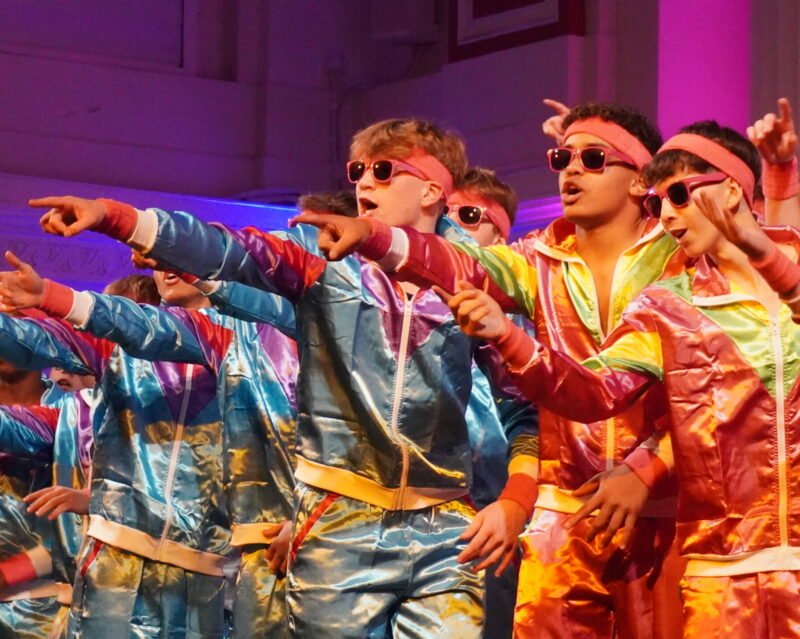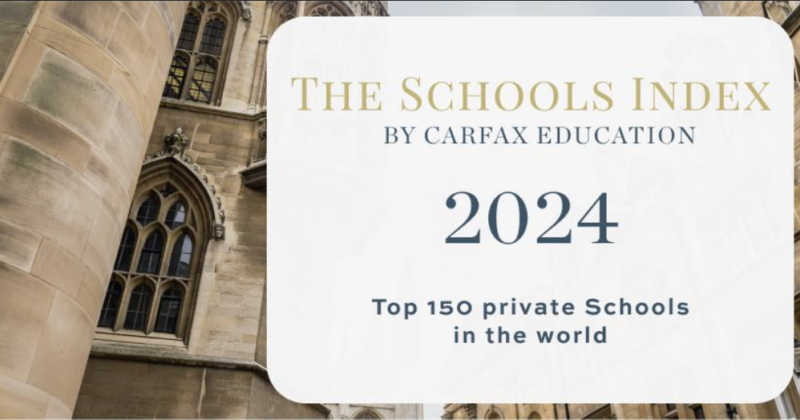This website uses cookies so that we can provide you with the best user experience possible. Cookie information is stored in your browser and performs functions such as recognising you when you return to our website and helping our team to understand which sections of the website you find most interesting and useful.
English gets active
Lower School pupils enjoyed a visit to The Old Vic at the end of February to see Sir Derek Jacobi in the much-praised production of The Tempest.
Some of the pupils give some thoughts on the play, and the production itself, below:
"The music was lively and consisted of a viola, harp, flute and percussion. Most of the music sounded quite light and airy as it was trying to give a sense of magic to the audience because the island in the play is supposed to be magical and mysterious." – Miranda Hickman
"The set was made out of wood, which gave the idea that it was like a house that someone had built for himself. The lighting was particularly effective. It was used to create an effect of stormy seas as well as sandy beaches." – Will Grundy
"Caliban’s costume was very complex – in a unique idea, instead of having him as a fearful ruler, he was a bit more of a tramp. Caliban would not have worn much because he would have limited resources." – Jamie Bennett
"The set was well-arranged as it had trap doors to let characters enter in a more interesting way and it tilted in the middle so you could see everything from their head to their feet!" – Stephanie Wainwright
"I quite liked the costumes because they suited the characters well. Miranda wore a white dress which was quite ragged, and that is what I thought her costume would be like. Also, some of the costumes were funny, so they kept you interested." – Lucy Brown
"I thought that when Ariel sang, it was very peaceful and made you feel relaxed. I also loved the beginning sounds of the storm, because they were loud and made you understand the beginning of the play well." – Lucy Phillips
"The set design was quite clever as it was slanted so the whole stage could be seen. The use of trap doors was excellent as was the back wall that reflected the light on the whole stage. The design was clever and I thought it was complemented well by the lighting." – Alexander Lodge
"The costumes were good, as they put each person in their place or rank as soon as they met the eye. You could tell Ariel was a spirit because he had white clothes and that Caliban was a low being because his clothes were torn and muddy." – Nick Payne
For more information see: www.thetempest.info
English is thriving at Haileybury: this year the pupils have already travelled to see My Fair Lady and Shaw’s Corner (for their IB course), as well as watched a production of Pygmalion. IB students have also attended an excellent course on Atwood’s The Handmaid’s Tale.
We have welcomed esteemed Irish poet and academic Micheal O’Siadhail to read from his new collection of poems on the Holocaust (www.osiadhail.com) and storyteller Ben Haggarty has entertained lower school pupils with his tales of love and horror. At the beginning of March Lower School and Removes pupils benefited from classes in creative writing with writer-in-residence, Kenneth Steven.
Coming up for the department over the next few months will be an Upper 6th English Literature trip to a conference on Othello; LS1 pupils will be travelling to the OpenAir Theatre in Regent’s Park to see A Midsummer Night’s Dream; world-renowned poet Les Murray (www.lesmurray.org) will be giving a poetry reading to parents, pupils and guests on April 24 at 7.30pm; Edexcel Chief Subject Officer for English Literature, David Davies, will be talking to Lower and Upper 6th pupils on April 25; renowned academic and teacher Ian Brinton will also be visiting us to take 6th Form and IB classes on Practical Criticism and examination practice.
Looking further ahead: a one-man show on Lord Byron is planned to delight (and probably shock) us at the start of next year, and Shakespearean expert Pamela Mason will visit the school to talk to Sixth Formers about the Bard … and there will be more poets, writers, academics and trips to come.




